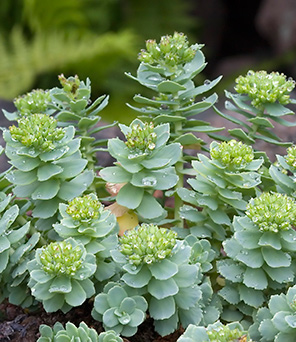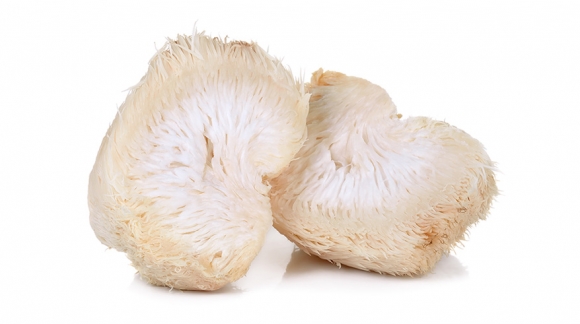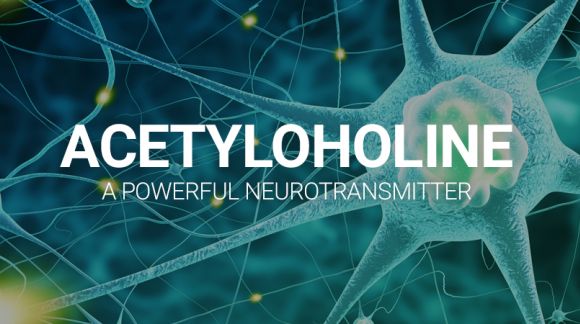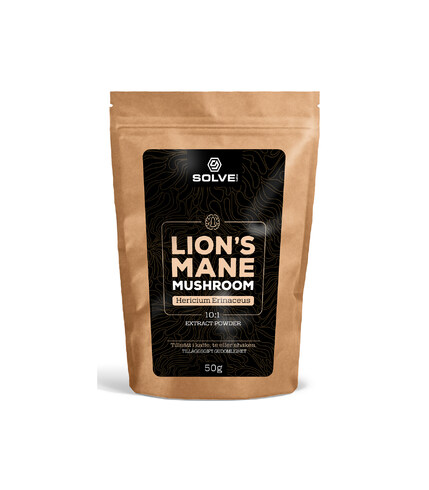Adaptogens - herbs adapted to the 21st century

Adaptogens have recently become more and more popular. They are a class of natural substances of plant or fungal origin that show many positive aspects when they are delivered to the body. They affect not only the resistance of the human body to stress, but also increase its efficiency.
The article has been divided into several sections:
1. History of adaptogens.
2. Definition of the term adaptogen and directions of scientific research.
3. Why can adaptogens improve health?
4. Ashwagandha - 21st century adaptogen.
5. How does Rhodiola Rosea improve the quality of life?
6. Reishi - a mushroom that has become an adaptogen.
7. Summary
1. History of adaptogens.
The term "adaptogen" was first introduced in 1940. Lazarev, a scientist from the USSR, described the effects of a product called "Schisandra chinesis". He based his investigations on the research of other Russian scientists analyzing the effect of berries and seeds on improving the body's performance (Komarov 1895, Arseev 1903-1907). The main goal of the research activities carried out was to increase the efficiency of soldiers during warfare. In the 1960s, special research teams were established in the Soviet Union to search for the best solutions in this area. Importantly, this search has become an independent field of biomedical research. This project investigated the effects of various substances from the plant kingdom on the human body. About 1,000 studies have been conducted over the course of 20 years, which shows the scale of interest in this type of topic.
2. Definition of the term adaptogen and directions of scientific research.
Adaptogens have been defined as "herbal preparations that increase attention, endurance in fatigue, and reduce impairments and stress disorders related to the neuroendocrine and immune systems".
Research on adaptogens currently covers four areas. The first is phiotochemistry. It concerns explaining the structure of active ingredients in plants that show adaptogenic effects. In addition, ways are being sought to isolate them in order to create more effective compounds. The second section is biochemistry and molecular biology. They investigate their mechanisms of action. The third area is clinical and experimental pharmacology investigating the effectiveness of various adaptogenic compounds. The fourth is the development of products that have a well-established effect supported by many studies.
3. Why can adaptogens improve health?
Adaptogens can affect various organs and tissues. The result is the creation of conditions that bring their activities closer to achieving homeostasis. Every life situation generates stress to a bigger or smaller degree. It mobilizes various stress reactions in the mental, emotional, thermal, hormonal, biochemical and physical areas. Unfortunately, there is too much stress in the 21st century. The human body has not been used to such a situation in the process of evolution. The adrenal glands, which produce cortisol (the stress hormone), are strained too often. Its excess may lead to the appearance of symptoms of a metabolic state, which is associated with the suppression of immune reactions, the appearance of inflammation, hyperglycemia or even muscle atrophy. Therefore, long-term stress can lead to severe adrenal gland damage and health problems.
According to many scientific studies, the use of adaptogens may lead to the support of the adrenal glands. This mechanism is associated with increasing the level of cellular energy, which leads to counteracting oxidative damage. An example is Ginseng, which inhibits 11-beta hydroxysteroid dehydrogenase. Eleutherococcus senticosus, on the other hand, inhibits catecholO-1-methyl transferase. The above two processes are related to the stress mechanism. As a result, the above-mentioned adaptogens are able to "catalyze the degradation of stress hormones into inactive compounds". In short, this means that they regulate the cortisol level in the body to the correct concentration level.
The most popular adaptogens and their impact on the human body are presented below.
4. Ashwagandha - 21st century adaptogen.
Ashwagandha or Withania somnifera is one of the most important herbs in Ayurveda, which is a traditional system of Indian medicine. Studies have shown many positive aspects of its use. It affects the improvement of the functioning of the brain and nervous system. The data show that people using it achieve better memory. In addition, it improves the functions of the reproductive system. In men, it is able to raise testosterone levels. The above gains are made possible by increasing the body's resistance to stress. In addition, studies have shown improvement in the body's resistance to diseases. This is due to the fact that it exhibits strong antioxidant properties. This means Ashwaganda helps to protect the body against free radicals that lead to cell damage. Research shows that this adaptogen can be an effective supplement in the treatment of stomach ulcers, flatulence or acne breakouts
Tests conducted on elite cyclists showed that the administration of this adaptogen significantly improved cardio-respiratory endurance. Other scientific studies have shown that it is a good solution for improving body composition. Due to the reduction of stress, it can be an important supplement in the process of getting rid of excess fatty tissue located at the abdominal level. This is due to the fact that, according to the data, stress contributes to its accumulation in that area. People who build muscle mass can also benefit from its properties, as it increases testosterone levels.
5. How does Rhodiola Rosea improve the quality of life?
Mountain rosary is also known as Rhodiola rosea. It is a very rare plant. Most often it grows at high altitudes. Most of all, it can be found in the mountainous and arctic regions of North America, Asia and Europe. Scientific research has shown many positive effects of its use. First of all, it has antioxidant, anti-stress and anti-inflammatory properties. In addition to strengthening the immune system, it can also be one of the elements supporting the process of regaining normal body weight. This is due to the fact that it exhibits similar properties to the above-mentioned Ashwagandha. Importantly, it also has anti-toxic properties. In recent years, this adaptogen has been tested for supporting cancer treatment. The data show that it can be an important element supporting therapies. However, much research is needed on its combination with other drugs to draw far-reaching conclusions.
6. Reishi - a mushroom that has become an adaptogen.
Reishi is one of the mushrooms that have been extremely popular in Asian countries for centuries. According to the results of scientific studies, they have a strong antioxidant effect. Due to its antiangiogenic, anti-proliferative and pro-apoptotic properties (supports the natural process of programmed cell death in the body), this adaptogen may be one of the elements of cancer therapy. This process is based on Reishi stopping the cell cycle. In addition, it has been shown to obtain positive effects when using it in people suffering from diabetes. Interestingly, the data published in 2017 in the review of available research results showed that it may have a positive effect on counteracting the effects of aging. The mechanism of its action is to slow down or reverse the effects of neurodegenerative diseases that appear with age. However, longer studies are needed to fully confirm the doses that may contribute to increasing life expectancy.
Summary
When analyzing all of the above material, it should be borne in mind that for a plant to be called an adaptogen, it must meet specific requirements. First of all, its properties must be able to regulate stress. In addition, stimulate adaptation. Due to their influence on the neuroendocrine system and a number of related mechanisms, adaptogens are becoming important supplements consumed by athletes. In addition to supporting the nervous system in stressful situations, they increase the body's efficiency. The results of research on extending life or fighting cancer are also promising. Therefore, it can be undoubtedly stated that adaptogens should be included in the supplementation of each of us. Both people who lead a very active lifestyle and those who want to support everyday functioning will benefit from their use.

Bibliography:
Shenowy S., Chaskar U., Sandhu J.S., Paadhi M.M. , Effects of eight-week supplementation of Ashwagandha on cardiorespiratory endurance in elite Indian Cyclists, Journal of Ayurveda and Integrative Medicine, 3(4), 2012, s. 209 - 214.
Singh N., Bhalla M., de Jager P., Glica M., An overwiew on Ashwagandha: A rasayana (Rejuvenator) of Ayurveda, African Journal of Traditional, Complementary and Alternative Medicines, 8(5), 2011, s. 208 - 213.
Choudahry B., Shetty A., Langade D.G., Effiacy of Ashwagandha (Withania somnifera [L.] Dunal) in improving cardiorespiratory endurance in healthy athletic adults, An International Quaterly Journal of Research in Ayruveda, 36(1), 2015, s. 63 - 68.
Li Y., Pham V., Biu M., Song L., Wu C., Walia A., Uchio E., Smith-Liu F., Zi X., Rhodiola rosea L: An herb with anti-stress, anti-aging, and immunostimulation properties for cancer chemoprevention, Current Phrarmacology Reports, 3(6), 2017, s. 384 - 395.
Wang J., Cao B., Zhao H., Feng J., Emerging Roles of Ganoderma Lucidum in Anti-aging, Aging and Disease, 8(6), 2017, s. 691 - 707.
Liao L-Y., He Y-F., Li L., Meng H., Dong Y-M., Yi F., Xiao P-G., A preliminary review of studies on adaptogens: comparison of their bioactivity in TCM with that of ginseng-like herbs used worldwide, Chinese Medicine, 13, 2018.










